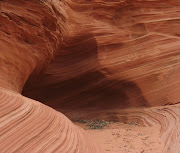Australians first received patriotic pleas to eat kangaroos. Based on a three year study, the next request is more urgent, the wild and proliferating camels are destroying the desert ecosystem. Eat them. It is part of the new age million camel
urgent, the wild and proliferating camels are destroying the desert ecosystem. Eat them. It is part of the new age million camel herd control plan urged by the government. To ensure the example starts at the top, civil servants in Canberra are putting a camel on the "barbie" for their annual BBQ. Water, already an issue is a commodity that is being consumed by the animals that are now reaching out of control numbers. Same could be said for humans too - but we already know which will consume which and blame the other in the name of preservation. What a way to get over the hump.
herd control plan urged by the government. To ensure the example starts at the top, civil servants in Canberra are putting a camel on the "barbie" for their annual BBQ. Water, already an issue is a commodity that is being consumed by the animals that are now reaching out of control numbers. Same could be said for humans too - but we already know which will consume which and blame the other in the name of preservation. What a way to get over the hump.
 urgent, the wild and proliferating camels are destroying the desert ecosystem. Eat them. It is part of the new age million camel
urgent, the wild and proliferating camels are destroying the desert ecosystem. Eat them. It is part of the new age million camel herd control plan urged by the government. To ensure the example starts at the top, civil servants in Canberra are putting a camel on the "barbie" for their annual BBQ. Water, already an issue is a commodity that is being consumed by the animals that are now reaching out of control numbers. Same could be said for humans too - but we already know which will consume which and blame the other in the name of preservation. What a way to get over the hump.
herd control plan urged by the government. To ensure the example starts at the top, civil servants in Canberra are putting a camel on the "barbie" for their annual BBQ. Water, already an issue is a commodity that is being consumed by the animals that are now reaching out of control numbers. Same could be said for humans too - but we already know which will consume which and blame the other in the name of preservation. What a way to get over the hump.More than a century ago in the name of progress and needing animals better suited to the dry conditions, the great camel pack "horse" arrived for immigrants to make their way to the Australian interior hauling their survival necessities. Transportation methods drastically improved making the camel no longer required. They were set free and Voila!, a veritable camel population explosion ensued. Now, Australians in charge of policy are tying novel culinary methods to change the balance of environmental power and justice.But as they increased in numbers, they also increased greenhouse gasses and helped turn some environments into deserts, destroying plants and animals.
According to the Northern Territory natural resources department, Australia's feral camel population is doubling every nine years.
Says department spokesperson Glenn Edwards: "Because camels are cautious animals and beautifully camouflaged, and because these areas are sparsely settled, most people are simply unaware of the sheer numbers of these introduced pests – or of the extent of the damage they are causing." (Camel Herd Photo: Hans Boessem)
 While Territory Camel sends some meat interstate and overseas, most is eaten in and around Alice Springs.
While Territory Camel sends some meat interstate and overseas, most is eaten in and around Alice Springs.Camel dishes include a camel, kangaroo and crocodile pizza served at the King's Canyon Resort, and the traditional Middle Eastern "baked camel", in which carp are stuffed into turkeys, which are stuffed into a sheep, which is stuffed into a camel, which is wrapped in banana leaves and baked in coals for two days.
Monir Samad, owner of Afghan Village restaurant in Camberwell, has never eaten camel — watching them being slaughtered outside his house when he was a child was enough to put him off — but said he would certainly serve camel meat in his restaurant if it became readily available.
 I am not sure about the image of being replete after eating a marsupial versus consuming filet of camel hump, but it appears to be of no concern to many. On the other hand, eating the animals to control their numbers has been part of the human condition since walking upright. Meat eating is a known accelerant to global warming so there is an "upside" to partaking. These are the latest to be put on the list as causes of methane gas that heat the earth, especially in drought stricken Australia.
I am not sure about the image of being replete after eating a marsupial versus consuming filet of camel hump, but it appears to be of no concern to many. On the other hand, eating the animals to control their numbers has been part of the human condition since walking upright. Meat eating is a known accelerant to global warming so there is an "upside" to partaking. These are the latest to be put on the list as causes of methane gas that heat the earth, especially in drought stricken Australia.
One of the great food books that talks about where the food originates to the time it hits the taste buds is from author Michael Pollan. The Omnivore's Dilemma: A Natural History of Four Meals puts it all in perspective. Carnivores have ruled the earth for eons, now find out what greens and vegetables have been hiding along with all the processed food available at every price point. Eye opening, but not exactly mouth watering.










1 comment:
i think whatever be the step to save our planet, we should take it.if camels and kangaroo's are affecting our ecosystems then we have to take this step.
We've got to be united to save earth! Earth Hour is practiced at large scale in all developed and developing countries but there has been more publicity and awareness this year, as well as participation from large corporations like http://www.commit21.com/ which is a good sign - that there is still hope and that people still care!
Let's all do this, no matter where you are! Saturday, 28 March 2009. Lights off from 8.30pm to 9.30pm!
Post a Comment